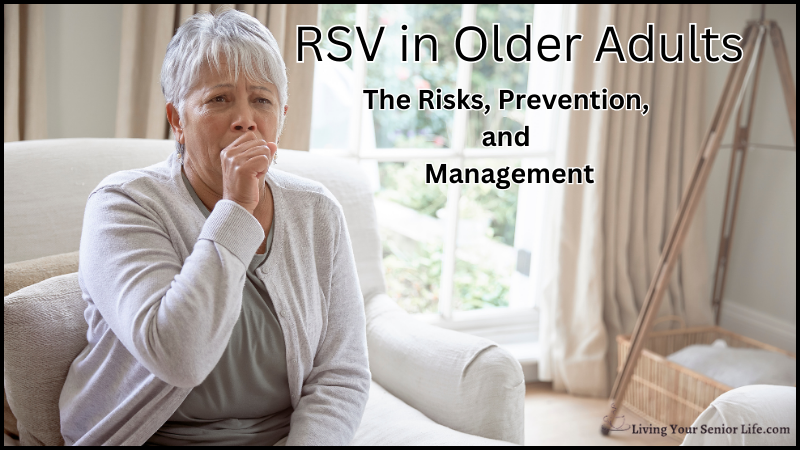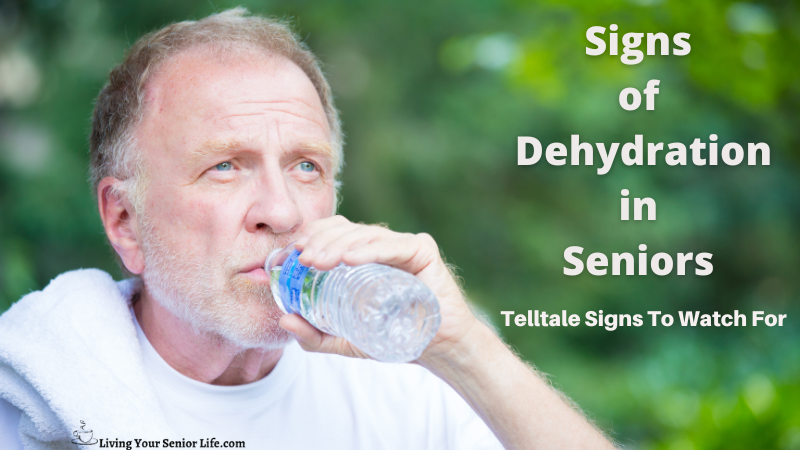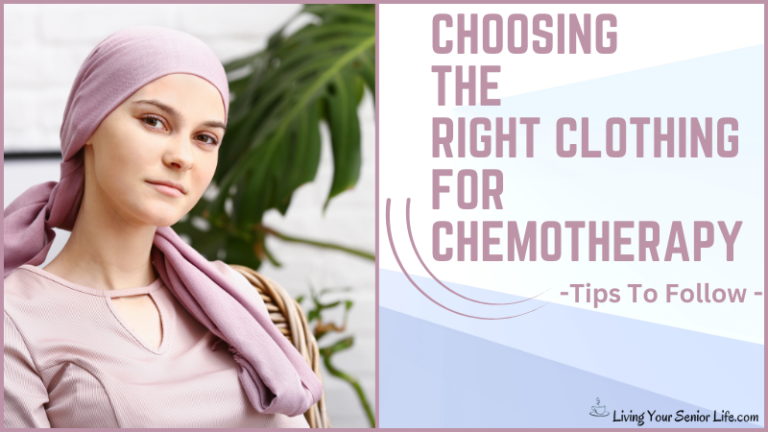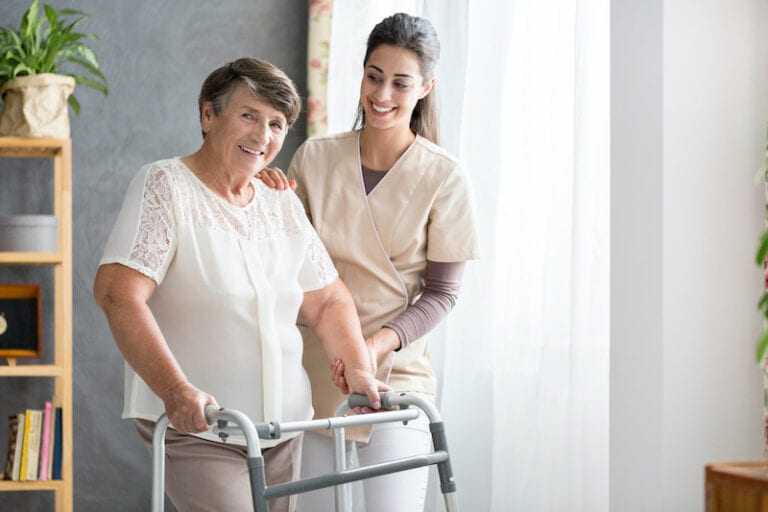As you age, your immune system becomes more vulnerable to certain infections, including respiratory illnesses. One such infection that can pose a risk to older adults is Respiratory Syncytial Virus Infection (RSV). Understanding RSV (Respiratory Syncytial Virus) is crucial to safeguarding the health and well-being of older adults. In this article, we will provide an overview of RSV, its common stages and progression in adults, how it spreads, and how to identify its symptoms in older adults. We will also discuss the risks and complications associated with RSV in older adults, as well as the preventive measures and management strategies that can help reduce the impact of this infection. By the end of this article, you will have a better understanding of RSV and the steps you can take to protect yourself or your loved ones.
This post is for informational purposes only and should not be used in place of the advice of a medical professional.
Key Takeaways:
- RSV is a respiratory illness that can pose a risk to older adults due to their weakened immune system.
- Symptoms of RSV in older adults can range from mild to severe, making it important to identify them early.
- Preventive measures such as vaccination, hand hygiene, and avoiding contact with infected individuals can help reduce the risk of RSV infection.
Video: RSV In Older Adults
Understanding RSV (Respiratory Syncytial Virus)
RSV is a viral infection that primarily affects the respiratory system. It can spread through respiratory droplets when an infected person coughs or sneezes. The virus can survive on surfaces for hours, making it easy to contract by touching contaminated objects and then touching your face. RSV can cause respiratory tract infections, including bronchiolitis and pneumonia, and is especially dangerous for infants, older adults, and people with weakened immune systems.
What Are The Common Stages And Progression of RSV In Adults?
RSV (Respiratory Syncytial Virus) is a common respiratory virus that affects people of all ages. However, it is more severe in older adults and people with weakened immune systems. The virus can progress in stages, and the symptoms can vary depending on the severity of the infection. Here are the common stages and progression of RSV in adults:
- Incubation period: This is the time between exposure to the virus and the onset of symptoms. The incubation period for RSV is usually 4-6 days.
- Upper respiratory tract infection: The first stage of RSV infection usually involves symptoms of an upper respiratory tract infection, such as a runny nose, sore throat, cough, and fever. These symptoms can last for several days.
- Lower respiratory tract infection: In some cases, RSV can progress to a lower respiratory tract infection, such as bronchiolitis or pneumonia. Symptoms of a lower respiratory tract infection may include shortness of breath, wheezing, chest pain, and difficulty breathing.
- Recovery: Most people with RSV recover within 1-2 weeks. However, older adults and people with weakened immune systems may take longer to recover and may be at risk for complications.
It is important to seek medical attention if you experience any symptoms of RSV, especially if you are an older adult or have a weakened immune system. Your doctor may recommend supportive care, such as rest, fluids, and over-the-counter medications to relieve symptoms. In severe cases, hospitalization may be necessary.
Identifying RSV Symptoms in Older Adults
If you are an older adult, it’s important to recognize the symptoms of RSV infection to get timely treatment. Symptoms may vary, but common ones include:
- Persistent coughing with wheezing
- Shortness of breath and difficulty breathing
- Low-grade fever
- Stuffy or runny nose
- Sore throat
- Fatigue and malaise
It’s worth noting that RSV symptoms in older adults can be similar to those of other respiratory illnesses, so accurate diagnosis is crucial for effective management.
Severe Symptoms of RSV To Watch Out For
RSV symptoms can range from mild to severe. In older adults, RSV can cause severe respiratory symptoms, including shortness of breath, wheezing, and chest pain. If you or a loved one experiences these symptoms, seek medical attention immediately.
How RSV Spreads
RSV spreads through close contact with infected individuals or contaminated surfaces. During the fall and winter, commonly known as RSV season, the virus is highly contagious and easily spread through coughing and sneezing. It is important to avoid touching your face after touching a surface that may be contaminated with RSV. If you suspect you have RSV, a swab test can confirm the diagnosis.
Risks and Complications Associated with RSV in Older Adults
Three groups that are at higher risk for complications from RSV include:
- Adults with heart or chronic lung disease
- Those individuals with a weakened immune system
- Older adults
Older adults are at higher risk of experiencing serious complications from RSV due to age-related changes in the immune system. Additionally, preexisting health conditions, such as chronic lung disease or heart disease, can further increase susceptibility to RSV and worsen its impact.
Vulnerability of Older Adults to RSV
RSV can be especially dangerous for older adults due to age-related changes in the immune system. As you age, your immune system naturally weakens, making you more susceptible to infections like RSV. This reduced immune response hampers the body’s ability to fight off the virus effectively, which can lead to more severe symptoms and a higher risk of complications.
Additionally, preexisting health conditions such as chronic lung disease, heart disease, or weakened immune systems can further increase susceptibility to RSV and worsen its impact. Nursing home or long-term care facility residents may also be at increased risk due to close living quarters and shared ventilation systems.
Potential Complications
Older adults with RSV are at risk of developing respiratory problems such as bronchitis and pneumonia, which can exacerbate preexisting health conditions such as chronic obstructive pulmonary disease (COPD) or congestive heart failure. These complications can increase the risk of hospitalization and even death.
In immunocompromised individuals, RSV can cause severe lower respiratory tract disease, lung infections, and inflammation, which can be life-threatening. Cancer patients and those who have undergone organ transplants are also at increased risk of severe RSV disease.
It is essential to take extra precautions during RSV season, particularly if you are an older adult or have a chronic medical condition. Good hygiene practices, such as washing your hands regularly, avoiding close contact with sick individuals, and staying home when you are sick, can help reduce the risk of contracting RSV.
Preventive Measures for RSV in Older Adults
RSV can have serious consequences for older adults. However, there are several preventive measures that you can take to reduce the risk of exposure and lower the likelihood of infection.
Vaccination for RSV
Although there is currently no specific RSV vaccine available for older adults, getting routine vaccinations such as influenza and pneumococcal vaccines can support overall respiratory health and lower the risk of complications if an RSV infection occurs. Recently, two RSV vaccines licensed for use in adults aged 60 years and older in the United States have been approved: RSVPreF3 (Arexvy, GSK) and RSVpreF (Abrysvo, Pfizer). These vaccines are administered as a single dose and can help protect against serious RSV disease.
Personal Hygiene Practices
Practicing good hand hygiene is a fundamental preventive measure. Wash your hands frequently with soap and water for at least 20 seconds, especially before eating, after using the restroom, and after being in public spaces. If soap and water are not readily available, use an alcohol-based hand sanitizer with at least 60% alcohol. Additionally, avoid touching your face, especially your eyes, nose, and mouth, as this can increase the risk of infection.
Social Distancing and Avoiding Crowded Places
During peak RSV seasons, it is advisable for older adults to avoid crowded places and maintain social distancing. This helps reduce the risk of exposure to RSV-infected individuals and minimizes the chances of contracting the virus. If you must go out in public, wear a mask to help protect yourself and others from respiratory infections.
It is important to note that the COVID-19 vaccine does not protect against RSV. Therefore, it is essential to continue following preventive measures to reduce the risk of RSV infection in older adults.
Managing RSV in Older Adults
If you suspect an RSV infection, it is crucial to seek medical attention promptly. Early diagnosis and proper management can significantly impact the outcome and minimize complications. Here are some guidelines to help you manage RSV in older adults.
Seeking Medical Attention
Consult a healthcare professional for an accurate diagnosis if you or a loved one experiences RSV symptoms. They will evaluate the symptoms, perform necessary tests, and recommend appropriate treatment based on the severity of the infection.
Treatment Options for RSV
There is no specific antiviral medication available for treating RSV in older adults. However, healthcare providers may prescribe supportive care measures to alleviate symptoms and manage complications. Rest, hydration, and maintaining a clean and comfortable environment are essential for a speedier recovery. In some cases, oxygen therapy or antibiotics may be necessary to manage severe complications.
Self-Care Tips
In addition to medical treatment, there are self-care measures that can help manage RSV symptoms at home. Adequate rest, staying hydrated, and using humidifiers or nasal saline sprays to ease nasal congestion can provide relief and support recovery. However, it is essential to consult a healthcare provider before taking any over-the-counter medications.
FAQs
Is RSV more severe in older adults compared to younger individuals?
RSV (Respiratory Syncytial Virus) is usually more severe in older adults compared to younger individuals due to age-related changes in the immune system. Preexisting health conditions can also increase susceptibility and worsen the impact of RSV. Seek medical attention promptly if symptoms occur.
Can RSV be treated with antiviral medication?
There is no specific antiviral medication available for treating RSV in older adults. Supportive care measures such as rest, hydration, and a comfortable environment play a crucial role in recovery. It is essential to follow the healthcare professional’s guidance for personalized treatment.
How long does RSV last in older people?
The duration of RSV in older people can vary depending on various factors, including the individual’s overall health and immune response. In general, RSV symptoms in older adults may last for 1 to 2 weeks, similar to other respiratory infections. Recovery time can vary, and some individuals may experience lingering symptoms or complications that require additional medical attention.
Additional Reading
Conclusion
In conclusion, RSV can pose a significant health risk to older adults. It is important to understand the symptoms, risks, and preventive measures to protect yourself or your loved ones. Practice good hygiene by washing your hands frequently, avoiding close contact with sick individuals, and covering your nose and mouth when coughing or sneezing. Seek medical attention promptly if you experience any symptoms such as cough, fever, or difficulty breathing.
By prioritizing RSV awareness and implementing preventive strategies, we can ensure the well-being of older adults during RSV seasons. Remember, consulting with a healthcare professional is always best if you have any specific concerns or questions about RSV in older adults.
For more information on RSV, visit the CDC and FDA websites.
Have you or a loved one experienced RSV? If you have and would like to share, please comment below.










